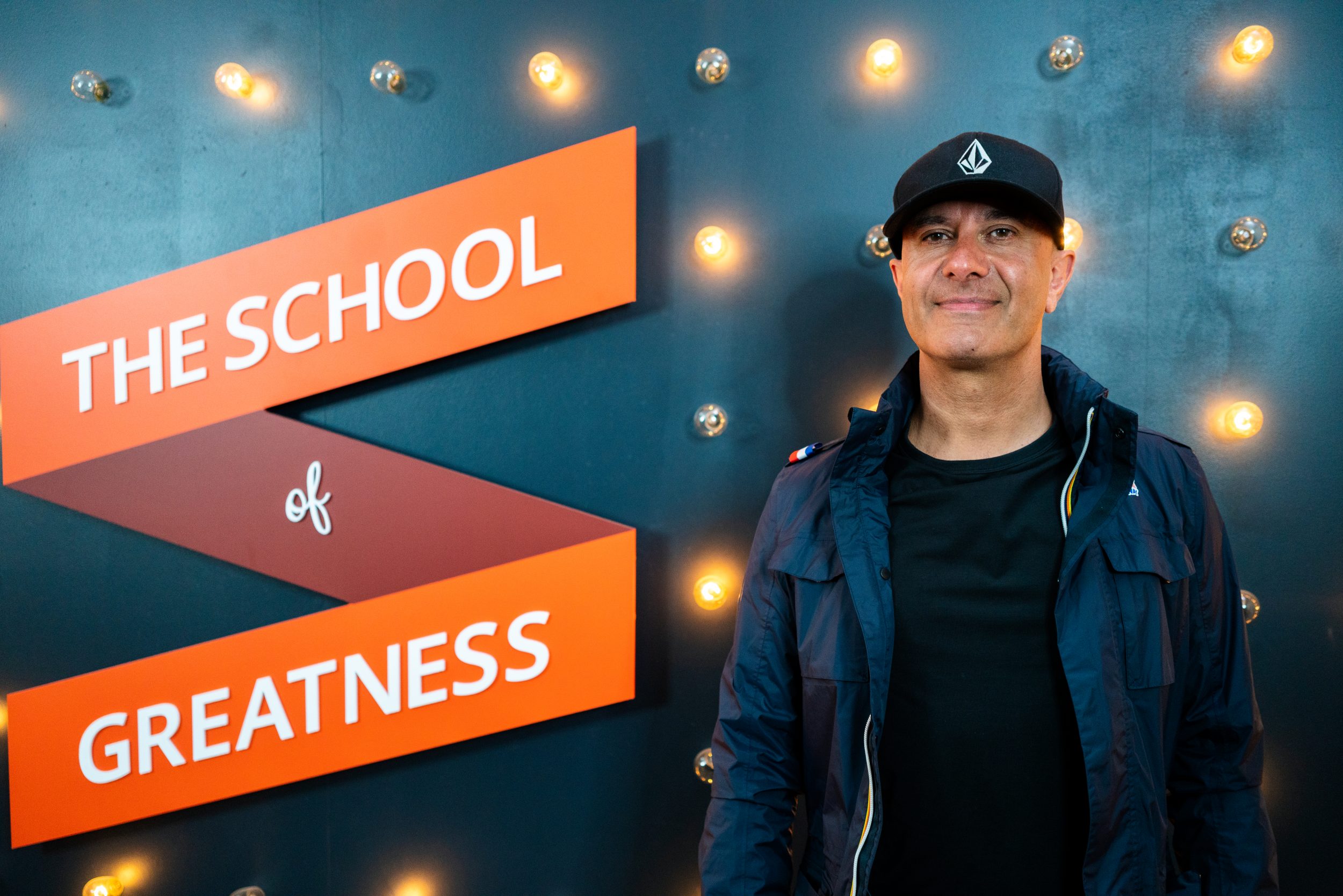“Your joy is simply your suffering, unmasked.”-Kahlil Gibran
It’s easy to get caught up in aspects of life that do not bring happiness into your life. Money is one of those topics that, while necessary, can bring you down if you are not where you want to be, financially.
Have you ever wondered what it really takes to achieve happiness? I’m sure at some point in your life, you have heard someone say “Money can’t buy happiness.” While it is certainly true that money is not the only way to be happy, it is one of the eight forms of wealth described by today’s guest, Robin Sharma.
Robin Sharma is a globally-recognized humanitarian who has been helping people realize their native gifts for over 20 years. Widely considered to be among the top 5 leadership experts in the world, Robin’s expertise and work have been embraced by clients ranging from NASA to HP, Starbucks, and even Yale. Robin possesses the unique ability to engage an audience while offering advice and insights that ultimately lead individuals to perform their best work, and organizations to become unbeatable.
In this episode, we will talk about how pain and suffering can lead to incredible personal growth, as well as the eight forms of wealth outlined in Robin’s bestselling book “The Everyday Hero Manifesto.”
Who is Robin Sharma?
With over 20 million copies of his books sold, Robin Sharma is one of the world’s most renowned humanitarians and leadership experts. Inspiring people to reach their true potential and utilize their natural gifts, Robin has helped clients of all types improve productivity and reach top performance.
After working as a lawyer until age 25, Robin no longer found satisfaction or peace in practicing law. It was at this time that he wrote his first book and published it himself at a Kinko’s copy shop, with his mother editing it for him. Robin initially stored 2,000 copies of the book in his kitchen and gave them to friends and family.
It wasn’t until his second book, “The Monk Who Sold His Ferrari,” was published that Robin was propelled into the spotlight. Former president of HarperCollins Canada, Ed Carson came across the book in a bookstore and immediately got in touch with Sharma to discuss republication and distribution. Since then, the book and its proceeding series have become one of the world’s most successful publishing franchises.
Not only is Robin a successful author and leadership expert, but he’s also an active philanthropist. The Robin Sharma Foundation for Children raises funds from around the world and donates them to children’s causes.
So, what does Robin have to say about wealth and happiness? Let’s jump right in!
Let the Hard Things Teach You
When I last saw Robin, I was coming off of a tough breakup and was searching for inspiration in life. After mentioning I was in a much better place than the last time I saw him, Robin had this to say:
“You know, it’s our suffering that teaches us how strong we are. It’s our pain that teaches us our true power. It’s our difficulties that birth our creativity. It’s when it’s the tragedies that give us wisdom and teach us love. So enjoy your time in the sun.” – Robin Sharma
When things in life bring you down or impact you negatively, it’s easy to fall into a rut and be miserable in your suffering. Robin does an excellent job of explaining why we should be thankful for these tough experiences because they propel us into incredible personal growth.
“We all wanna be less distracted, but I think the missing link to personal mastery is not in the head. It’s not a new technique. It’s doing the emotional healing that releases the blockages, that builds intimacy with who we truly are.” – Robin Sharma
So Robin is telling us that we need to allow our most painful experiences to teach us about ourselves. It’s going to be a lot harder to grow as an individual if you are still hung up on ancient wounds.
“We buy into a story that was taught to us. And then we keep rehearsing the story intellectually, emotionally, physically, and spiritually daily, until it creates brainwashing and a heart washing. We hypnotize ourselves against us for who we truly are. Then we walk out in the world and we see the Mandela, the Mother Teresa, the Rosa Parks, or the kind people on the street or the startup entrepreneurs, or the great artists or the amazing bakers. We say, ‘But they are not cut from a cloth that I can wear,’ and then we resign ourselves to average.” – Robin Sharma
I love how Robin paints this picture. None of us are foreign to the concept of not feeling good enough — I know I have struggled with this in the past! One of the most important first steps you can take is to believe that you can accomplish your goals. If you start anything thinking you will never achieve greatness, you likely never will.
So how do you go from viewing yourself as a victim of your circumstance to viewing yourself as a hero?



